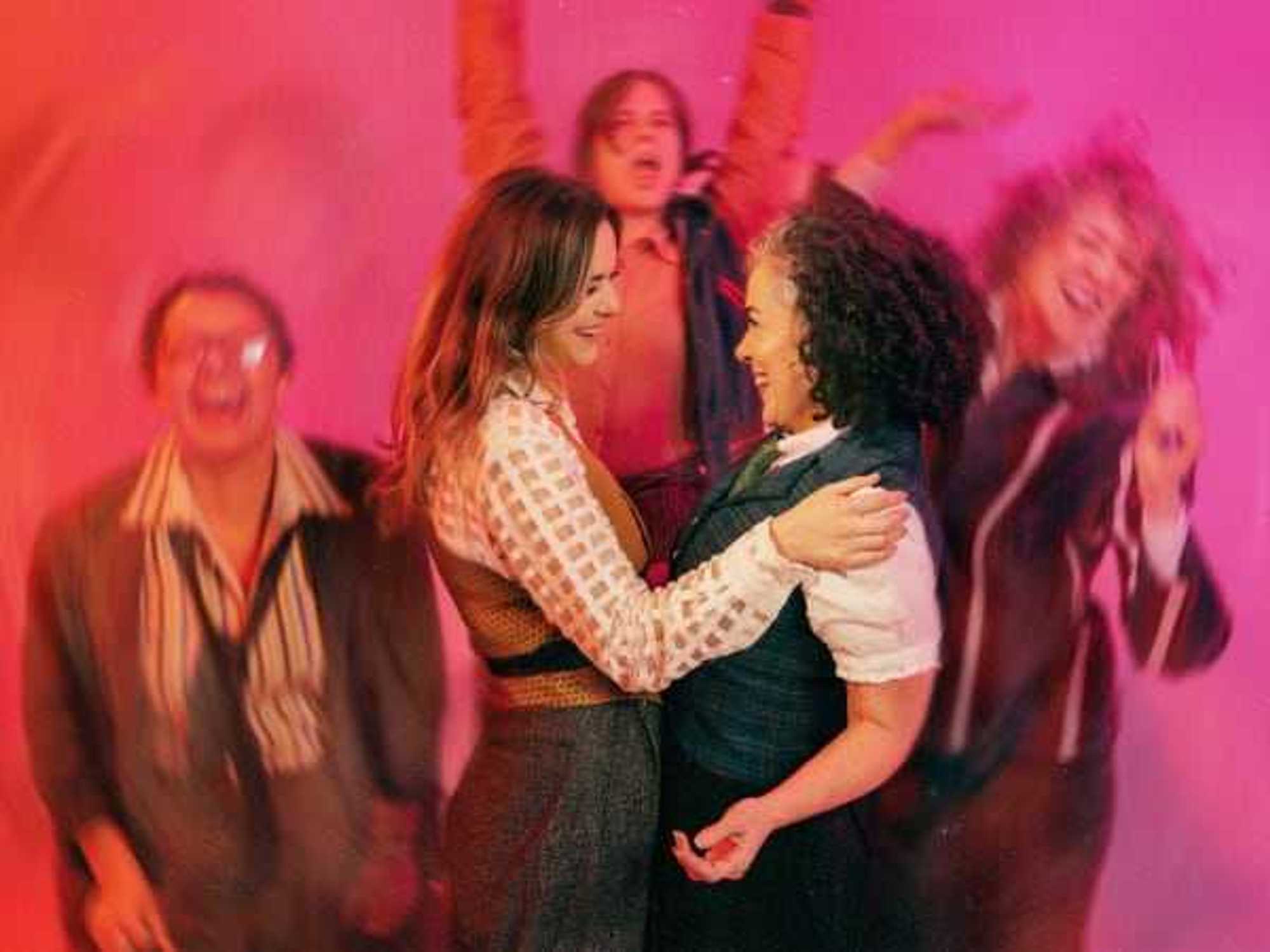Theater Review
Flights of silliness and imagination power Finding Neverland

During the second act of Finding Neverland, the musical based on the popular film, a boy named Peter introduces a backyard play he wrote for his mentor J.M. Barrie, telling him that it's not supposed to be taken seriously. "It’s really just a bit of silliness,” he says.
Finding Neverland the musical, with book by James Graham and music and lyrics by Gary Barlow and Eliot Kennedy, also contains quite a bit of silliness, but its broad comic antics do harbor a serious but hopeful message about the power of imagination to help us survive loss.
The show is very loosely (think seven-sizes-too-big loose) based on the true story of how playwright J.M. Barrie was inspired to write Peter Pan, and so at the core of Finding Neverland lies the relationship between Barrie (Billy Harrigan Tighe) and a young family he meets in the park: a recently widowed mother, Sylvia Llewelyn Davies (Christine Dwyer), and her four young sons. Three of the boys are playing pirates while the dour Peter (Connor Jameson Casey, who alternates the role) refuses to let imagination and play distract him from the real world, a world filled with dying parents.
Barrie is in desperate need of a new theatrical hit, but really he needs to find the fun in writing again. The boys could use a father figure, especially one who allows them to behave as kids instead of short grown-ups, as their societal matron grandmother (played with intentionally over-the-top in haughtiness by Karen Murphy) would have them behave.
And so while Barrie teaches Peter to find hope in life again, Peter and his brothers help Barrie rediscover Neverland, the magical land he invented as a boy when he also faced tragedy.
Those relationships represent the serious bit of the plot; the rest of the two-and-a-half-hour run time is spent on flights into the silly stratosphere, including meta commentary on theater production, overacting actors, and snooty society dinners. Almost every other song in the bland score is themed around the power of imagination.
When Captain Hook (a delightful John Davidson, he of game-show host fame) and his gang of singing pirates finally show up, representing Barrie’s inner dark side, these vaguely homo-erotic psychological shadows mostly just tell him to man up and demand more artistic freedom from his producer, Charles Frohman (Davidson again, and still fun).
One moment near the end when Mr. Henshaw (the scene-stealing Dwelvan David), a much-put-upon Shakespearean actor, must don a giant dog suit to become Nana in Peter Pan, is snatched literally right from under him by Neverland’s dog character Porthos (played by a very real and adorable canine named Sammy), David’s only real rival in theatrical scene thievery.
The show almost collapses onto itself in a meta singularity of silliness at that point, but like much of Finding Neverland, director Diane Paulus tempers the frivolity with poignancy (usually with moments that involve death). The national tour has been considerably reworked from the Broadway version, with the first act receiving the most changes, so existing fans of the show can further amuse themselves by spotting all the differences.
Barrie could have easily become the annoying man-child that Peter is in certain productions, but Tighe endows the character — and his constant insistence that imagination can lessen any tragedy — with a great amount of charm. As a mother, Sylvia is just too perfect and ideal, yet Dwyer humanizes her and therefore gives her tragedy some much-needed emotional heft.
The production is also just pretty to watch, thanks to the designers: Scott Pask (scenic), Suttirat Anne Larfarb (costume), and Jon Driscoll (projection).
Don't head off to Neverland looking for treasure troves of rich and dark psychological drama, but for a night of very light and fanciful theatrical flights, go ahead and clap your hands together for silly fairies and shaggy dogs. You can still find them in this Neverland.
---
Finding Neverland runs through July 23 at the Winspear Opera House.
